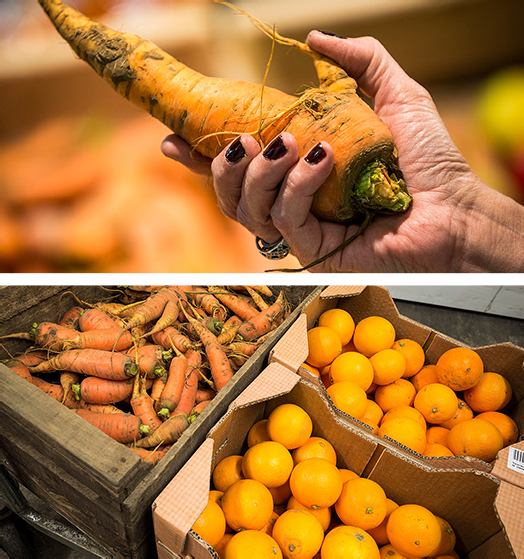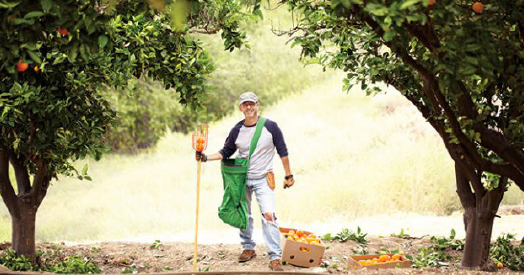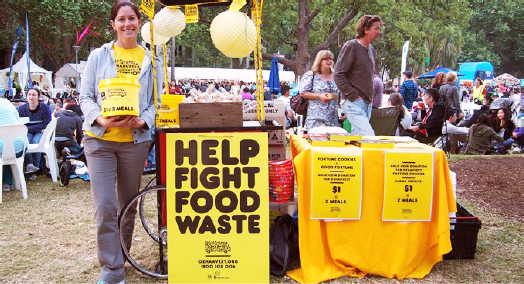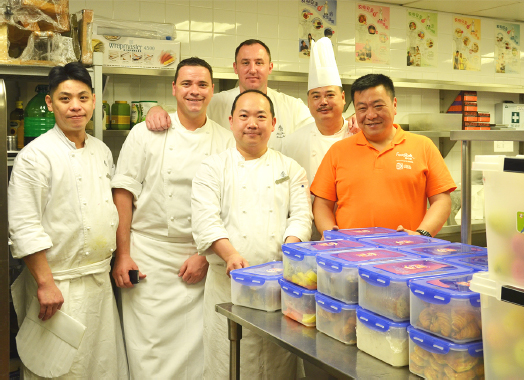Waste Not, Want Not
According to United Nations Environmental Programme (UNEP), about one-third of the food produced in the world for human consumption every year get lost or wasted. This amounts to a staggering 1.3 billion tonnes of food per year that get wasted, which is equivalent to more than half of the world's annual cereal crop. The level of waste is the most acute among wealthier countries. In the United States, approximately 40 million tonnes of food are wasted in households every year, and in the United Kingdom, around 6.7 million tonnes.
Looks Are Skin Deep
In order to reduce waste, some supermarkets have come up with creative and innovative ways to sell fruits and vegetables that look less appealing to consumers. One example of creative re-use of fruits that don't fit commercial standards of beauty can be found in the French supermarket chain, Intermarché. Its marketing campaign, Intermarche: Inglorious Fruits and Vegetables, won an award in the prestigious Cannes Film Festival. At this supermarket chain, the ugly fruits and vegetables were given their own aisle in the store, and sold at a 30 per cent discount. In the process, the retail industry received a pleasant surprise about consumer behaviour.

On average, Intermarché sold 1.2 tonnes of the ugly fruits and vegetables per store in the first two days of the campaign. The buzz from the campaign brought more people to its store and increased traffic to 24 per cent. As a result of the success of the Intermarché campaign, others are beginning to follow the store's lead. Monoprix stores in France, for example, have since begun their own campaign to sell aesthetically challenged fruit.
Palatably Imperfect
Other organizations focus on food rescue or food recovery, to gather food that would otherwise go to waste and redistribute it to feed the hungry. The recovered food is edible, but often not saleable. Products that are at or past their 'sell-by dates' or are imperfect (such as in the case of the ugly fruits and vegetables at Intermarché), are donated by grocery stores, food vendors, restaurants, and farmers markets to these organizations for re-distribution. At other times, the food is unblemished, but restaurants or school cafeterias may have ordered too much, or may have edible pieces of food such as scraps of fish or meat that are by-products of processes of preparing foods to cook and serve. Finally, food manufacturers may donate products that marginally fail quality control or that have become short-dated.

Fruits and Perishables
Food Forward is a nonprofit in Southern California which began five years ago with just an orange. In 2009, founder Rick Nahmias was walking around the neighborhood with his dog when he saw a great number of fruit trees that weren't being harvested. With the help of just one other volunteer, Nahmias launched his first harvest, and gathered 85 pounds of tangerines in a few short hours. Less than a month later, he enlisted 50 people on another harvest, which yielded 5,000 pounds of oranges that would have otherwise rotted. Now with three core programmes in place, Food Forward recovers and donates 4 million pounds of food each year.
Surplus Food
In Australia, social entrepreneur Ronni Kahn founded OzHarvest 2004. OzHarvest is the first perishable food rescue organization in Australia. It collects quality surplus food from commercial establishments, and delivers it, direct and free of charge, to 500 charities across Sydney, Adelaide, Brisbane, Gold Coast, Melbourne and Newcastle. Re-harvesting from a wide variety of sources, including fruit and vegetable markets, supermarkets, hotels, restaurants, even stadiums and corporate boardrooms, OzHarvest has become one of Australia's most successful environmental programmes. Founder Ronni Kahn was named Australia's Local Hero of the Year in 2010.


In Hong Kong
Locally, several projects in Hong Kong have begun to address the food shortage concerns of Hong Kong's needy. One of the first to start was Foodlink Foundation. Founded in 2001 and incorporated in 2009, Foodlink collects surplus food from hotels, restaurants and food retailers, and then repackages them with reheating instructions for safe consumption, and redistributes them to the needy, including shelters and rehabilitation centres. Foodlink also collaborates with Feeding Hong Kong, a charity established in 2009, that distributes fresh, canned and packaged foods, including fresh vegetables, through their refrigerated trucks to community-based partner organizations for further distribution.
All of these efforts help address both the need to reduce waste and to feed the hungry, thus ensuring the sustainability of societies local and global.


